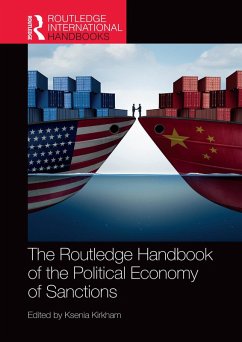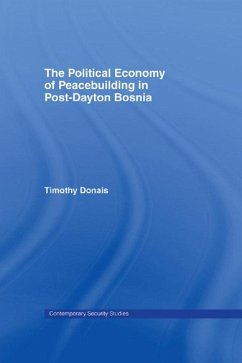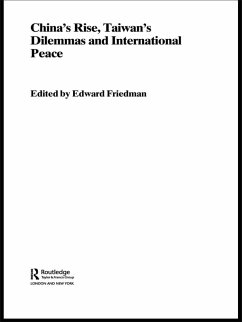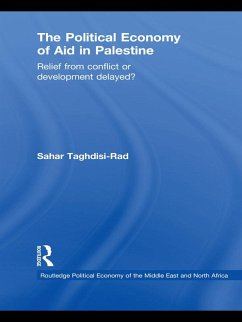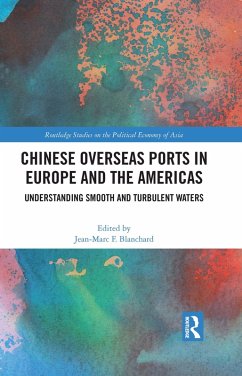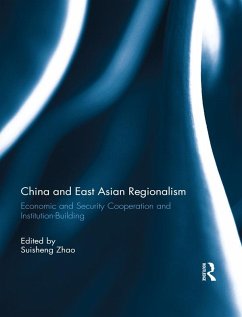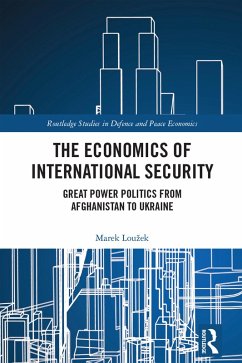
The Routledge Handbook of the Political Economy of Sanctions (eBook, PDF)
Versandkostenfrei!
Sofort per Download lieferbar
46,95 €
inkl. MwSt.
Weitere Ausgaben:

PAYBACK Punkte
23 °P sammeln!
The Routledge Handbook of the Political Economy of Sanctions examines the core issues and debates surrounding this controversial topic, introducing readers to essential concepts and terms. It communicates the evolving character of international sanctions from diverse perspectives, with a particular emphasis on questions of efficacy, legality, and legitimacy of sanctions, as well as the mechanisms by which they are applied.This interdisciplinary book explores the international political economy of sanctions in the constantly changing context of geopolitical rivalry. The authors investigate vari...
The Routledge Handbook of the Political Economy of Sanctions examines the core issues and debates surrounding this controversial topic, introducing readers to essential concepts and terms. It communicates the evolving character of international sanctions from diverse perspectives, with a particular emphasis on questions of efficacy, legality, and legitimacy of sanctions, as well as the mechanisms by which they are applied.
This interdisciplinary book explores the international political economy of sanctions in the constantly changing context of geopolitical rivalry. The authors investigate various theoretical and historical approaches to sanctions and apply these to specific case studies, such as the African Union, China, Cuba, India, Russia, Turkey, and the United States. The book gives a voice to sanctioned states and considers the impact of secondary sanctions. It analyses sanctions with reference to wider political debates such as national security, state sovereignty, economic warfare, and sustainability.
This handbook will be of immense interest to students, researchers, and scholars in the fields of political economy, international sanctions, political science, international relations, and foreign policy. It will also be useful for all those employed by political institutions, businesses, and nongovernmental organisations when assessing current sanctions regimes.
This interdisciplinary book explores the international political economy of sanctions in the constantly changing context of geopolitical rivalry. The authors investigate various theoretical and historical approaches to sanctions and apply these to specific case studies, such as the African Union, China, Cuba, India, Russia, Turkey, and the United States. The book gives a voice to sanctioned states and considers the impact of secondary sanctions. It analyses sanctions with reference to wider political debates such as national security, state sovereignty, economic warfare, and sustainability.
This handbook will be of immense interest to students, researchers, and scholars in the fields of political economy, international sanctions, political science, international relations, and foreign policy. It will also be useful for all those employed by political institutions, businesses, and nongovernmental organisations when assessing current sanctions regimes.
Dieser Download kann aus rechtlichen Gründen nur mit Rechnungsadresse in A, B, BG, CY, CZ, D, DK, EW, E, FIN, F, GR, HR, H, IRL, I, LT, L, LR, M, NL, PL, P, R, S, SLO, SK ausgeliefert werden.




